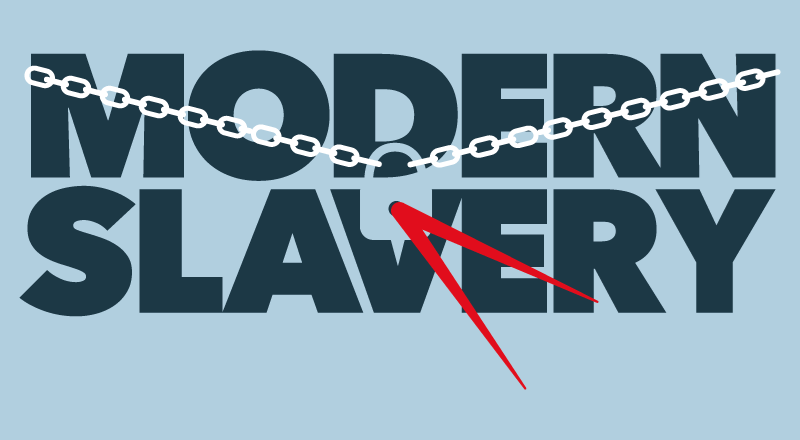In the year to September 2020, more than 5,000 UK corporations and other registered entities were convicted for criminal acts; 0.6% of all convictions logged in that period. Many of those convictions were for relatively minor offences, such as breaches of environmental or trading regulations.
Traditionally low conviction rates for businesses in relation to serious economic crime, such as fraud, have long fuelled concerns among legal and ethics experts that the law’s capacity to identify corporates as perpetrators for such offences is far too restricted.
With that issue in mind, the Law Commission launched a consultation last year to determine the effectiveness of the law as it stands, and to gather thoughts on how the relevant provisions could be improved. On 10 June, the Commission published its response.
Options on the table
As the Commission points out, the difficulty with the current legal test is that economic crimes and other serious offences require proof of a state of mind – or ‘mental element’ – encompassing an intention to bring about a desired result. “The question that then arises,” the Commission writes, “is whose state of mind is to be attributed to the corporation?”
As a rule of thumb, criminal liability for economic crime is applied to corporates via the ‘identification doctrine’, which holds that, typically, a business will be liable only for the conduct of an employee with sufficient status and authority to constitute that firm’s ‘directing mind and will’.
In other cases – for example, in relation to bribery or the facilitation of tax evasion – alternative provisions exist to highlight a ‘failure to prevent’.
The primary enforcement challenge is that those touchpoints become harder to verify in the context of large corporates. In such firms, prosecutors’ ability to ascribe intent to specific individuals begins to break down as the scope for deniability, obfuscation or shared involvement in illegal conduct grows.
In the interests of exploring whether the net should be tightened, the Commission’s response puts forward 10 options for the government to consider, as lawmakers square up to important questions of how – or whether – to reform the system. Those options are:
1) Retain the identification doctrine as it currently stands.
2) Allow conduct to be attributed to a corporate if a member of its senior management team engaged in, consented to or connived in the offence. This could be drafted so that CEOs and CFOs are always considered part of a firm’s senior team.
3) Introduce an offence of failure to prevent fraud by an employee or agent. This would apply when the company has not implemented appropriate measures to prevent their own employees or agents committing a fraud offence for the company’s benefit.
4) Introduce an offence of failure to prevent human rights abuses.
5) Introduce an offence of failure to prevent ill treatment or neglect.
6) Introduce an offence of failure to prevent computer misuse.
7) Make available publicity orders. This would require any corporate convicted of an offence to publish details of its conviction.
8) Introduce a regime of administratively imposed financial penalties.
9) Introduce civil actions in the High Court, based on Serious Crime Prevention Orders, with a power to impose monetary penalties.
10) Introduce a reporting requirement, requiring large corporates to report on their anti-fraud measures.
Criminal immunity
At security think tank the Royal United Services Institute (RUSI), Kathryn Westmore has been paying keen attention to the Commission’s work in this field. As a Senior Research Fellow in RUSI’s Centre for Financial Crime and Security Studies, Westmore is familiar with the legal gaps that gave rise to the consultation.
“There are types of economic crime that can only be facilitated by companies and/or the services they provide,” she says. “But prosecutors have often struggled to prove that a specific individual meets the requirement of being a company’s ‘directing mind and will’ – let alone that they were responsible for the company’s wrongdoing. Over the years, that has hampered corporate prosecutions.”
As a result, she notes: “Large corporates with decentralised decision-making structures are effectively immune from criminal prosecution. Given some of the egregious corporate behaviour we have seen over the past decade, that seems inherently wrong.”
In Westmore’s view, the Commission has taken a “pragmatic” approach. “It has shied away from any revolutionary change to the way in which corporate criminality is dealt with,” she says, “while trying to offer some limited opportunities for reform in specific areas. Critics have accused it of being unambitious – which is fair. But I think it’s inevitable that the Commission would always disappoint those who wanted full-scale reform.”
She notes: “The issue of corporate criminal liability is one that has historically proved divisive, and the Commission clearly felt that the need to balance any changes with the impact on business was an important part of its remit.”
Fraud focus
So, which of the Commission’s options should be seen as particularly valuable? Westmore says: “For me, the most significant one is option 3: the potential introduction of a ‘failure to prevent fraud’ offence. The Commission was asked to consider a broader ‘failure to prevent economic crime’ offence but, for a number of reasons, decided that a more specific offence – primarily related to corporate frauds carried out for the benefit of the company – would be more appropriate.”
While that option is more limited in scope than what many campaigners had called for, Westmore believes that the proposed offence would make it much easier for authorities to address specific types of corporate wrongdoing – such as false accounting and failures in organisational cultures that enable the perpetration of fraud.
However, she says: “It’s important to note that legislative changes alone won’t make up for the chronic underfunding of law enforcement and the legal system, which is also a significant barrier to prosecuting corporate economic crime.”
Rigour on risk
Although the options are pending consideration among MPs, Westmore thinks that in the meantime, corporates can still take away plenty of thinking points from the Commission’s response. “The report makes it very clear that failure to prevent-style offences are here to stay,” she says. “We have a couple of examples already in corporate offences under the Bribery Act and in relation to the facilitation of tax evasion in the Criminal Finances Act. I think it’s likely that we will see more – whether for fraud or, as the Commission has suggested may be worth considering, other crimes such as human rights abuses.”
Westmore notes that the defence to any extension of the failure to prevent regime is still likely to be predicated on the basis of a company having in place reasonable prevention measures to close down avenues for bad behaviour. That requires businesses to carry out risk assessments and ensure their policies and controls mitigate any risks discovered.
“Understanding the risks in your business and keeping that assessment up to date are vital steps for any defence to a failure to prevent offence,” she says. “But they also make good business sense – so corporates should be looking to fulfil them in any event.”
Reflecting on the Commission’s response, ICAEW Economic Crime Manager Mike Miller says: “As we can see, the Commission has proposed the introduction of a range of new failure to prevent offences – most notably one relating to fraud. However, as eye-catching as that option is, I would stress that any legislation that stems from it must be proportionate and clearly defined in order to be effective.”
Miller adds: “It is also worth noting that the detail of the Commission’s fraud proposal generally leans towards a civil rather than criminal measure. As such, there is likely to be a regime of civil obligations, likely supported by fines, for corporates that do not demonstrate sufficient steps to avert a failure to prevent economic crime.”
Recent articles
Company reform and economic crime
The Economic Crime Act 2022 became law in March and part two of the bill is incoming. From risks to required changes, we explore key considerations for accountants on the issue.




